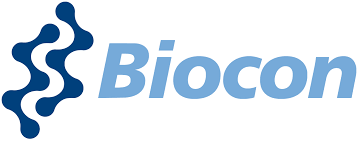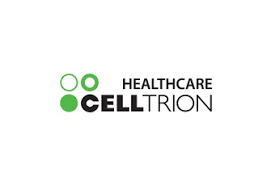- Bone Health
- Immunology
- Hematology
- Respiratory
- Dermatology
- Diabetes
- Gastroenterology
- Neurology
- Oncology
- Ophthalmology
- Rare Disease
- Rheumatology
Reports From Biocon, Celltrion on Finances, COVID-19 Treatments
Biocon tests the waters with itolizumab in pandemic-ravaged India, and Celltrion announces early success with an agent for the South African variant.
Biocon Biologics, of Bengaluru, Karnataka, India, reported first-quarter revenues were up 26%, to $275.9 million, vs the comparable year-ago quarter, driven largely by the company's biosimilars, research services, and generics businesses.
Amid the resurgence of COVID-19 in India, the company has also seen an increase in demand for itolizumab (Alzumab), which has shown value in treating acute respiratory distress syndrome (ARDS) associated with COVID-19.
First-quarter biosimilar revenues were $89.6 million, up from $59.8 million a year earlier, representing a 53% improvement, the company said. Total net income was $34.7 million, up 95% from a year earlier.
During the just-ended quarter, Biocon received marketing authorizations from the European Commission for a bevacizumab biosimilar (Abevmy) and an insulin aspart biosimilar (Kixelle). Biocon also received approval from the World Health Organization (WHO) for its trastuzumab biosimilar (Ogivri) in the 150 mg and 420 mg formulations. A WHO approval is generally referred to as a “prequalification” and represents the WHO’s thumbs-up for product quality and manufacturing practices.
In a statement, Arun Chandavarkar, managing director of Biocon, said improved sales in the company’s biosimilars segment were characterized by revenue growth in emerging markets and market share gains for the company’s pegfilgrastim and trastuzumab biosimilars in developed markets. The company also noted revenue gains for its insulin glargine product (Semglee), which was introduced in the United States in August 2020 and for which the company is seeking biosimilar status.
Itolizumab, an IgG1 kappa anti-CD6 monoclonal antibody, received restricted emergency use approval in India in July 2020 for the treatment of cytokine release syndrome in patients with moderate-to-severe ARDS who were hospitalized with COVID-19. Originally launched in India for the treatment of chronic plaque psoriasis, the drug reduces T-cell infiltration at sites of inflammation without depleting T cells or B cells.
In its most recent earnings statement, Biocon said at least 6500 patients were treated with itolizumab in April 2021. In March, the company published results from a randomized phase 2 study of the safety and efficacy of itolizumab in patients with moderate-to-severe ARDS due to COVID-19.
Investigators found itolizumab improved the 1-month survival rate and lung function, with reduction in the need for ventilator or respiratory support. They concluded “Itolizumab is a promising, safe and effective immunomodulatory therapy for treatment of ARDS due to cytokine release in COVID-19 patients, with survival and recovery-benefit,” although further study was recommended and this was in accord with earlier published research that recommended a go-slow approach.
Celltrion Group
Celltrion Group, another biosimilar developer, reported promising preclinical results for the use of regdanvimab (CT-P59) in the treatment of 3 variants (K417N, E484K, and N501Y) of the South African COVID-19 mutation (B.1.351). The company said CT-P59 demonstrated a significant reduction in viral load of SARS-CoV-2. Enrollment of 1300 patients in a global phase 3 clinical trial to evaluate the efficacy and safety of CT-P59 has been completed.
“We are encouraged by the new data, which reinforces that Celltrion’s CT-P59 treatment could be effective against the South African variant and variant mutations,” said HoUng Kim, PhD, head of the Medical and Marketing Division at Celltrion Healthcare.
Newsletter
Where clinical, regulatory, and economic perspectives converge—sign up for Center for Biosimilars® emails to get expert insights on emerging treatment paradigms, biosimilar policy, and real-world outcomes that shape patient care.


